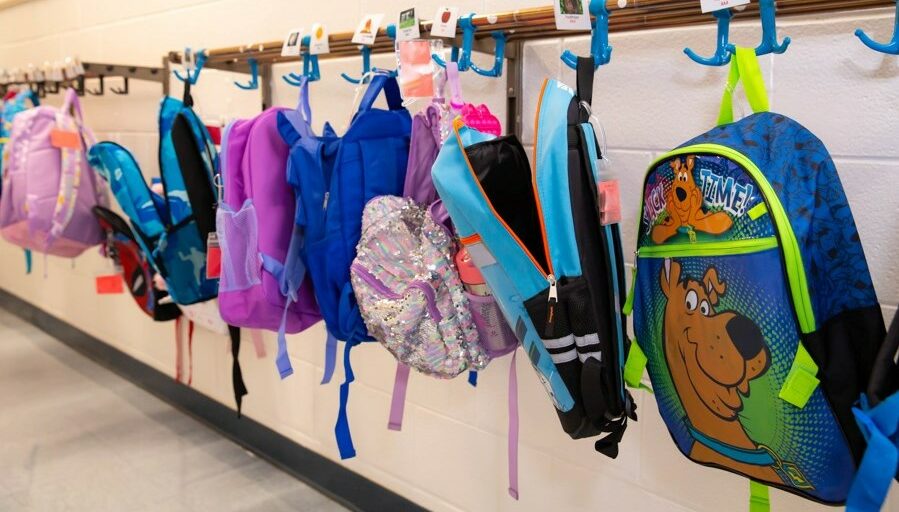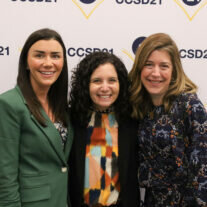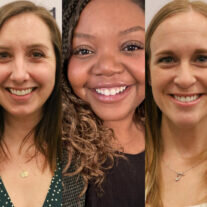Student Services
School District 21 offers a full continuum of services for students with special needs. The range of services includes individualized accommodations and modifications in curriculum and instructional strategies within the general education classroom, consultation or therapy from specialized experts or therapists, resource classes where students focus on specific skills-development, district-wide instructional programs, and specialized programs in alternative settings.
School District 21 is committed to providing appropriate education to all students within the Least Restrictive Environment (LRE). As we continue to embrace and support inclusive instructional practices, we work to provide effective special education supports and services within the context of the general education classroom to the greatest extent possible. This means that students with special needs will have membership in a general education classroom and will receive appropriate recommended individualized educational services with general educators, parents and special educators working as a collaborative team. If a student’s needs cannot be met with support at his/her neighborhood school, the educational team will work with parents to determine an appropriate, least restrictive service delivery option that best addresses his/her specific needs.
On its own and through participation in the Northwest Suburban Special Education Organization (NSSEO), School District 21 offers a continuum of special education services to support students with disabilities. Special education supports and services are outlined in an Individualized Educational Plan (IEP) for students who meet criteria under one or more of the following eligibility categories and whose disability has a significant impact on his/her education:
- Autism
- Deafness
- Deaf-Blindness
- Developmental Delay
- Emotional Disability
- Hearing Impairment
- Intellectual Disability
- Multiple disabilities
- Orthopedic impairment
- Other Health Impairment
- Specific Learning Disability
- Speech/Language Impairment
- Traumatic Brain Injury
- Visual impairment
Social work, psychological services, speech/language therapy, occupational and physical therapy, and adaptive physical education are some of the related services that may be provided to students, as determined by their IEP. Varying levels of support are provided to students, depending on their needs. The majority of students receiving special education services require support or specialized instruction for varying amounts of time during the day in order to access the curriculum. These supports or services may be provided either within the general education classroom, in a small group, or on an individual basis outside of the general education classroom for short periods of time. Consultation is provided for staff working with the student and services may be provided by a variety of professionals including related service providers. This collaborative team has opportunities to discuss student needs and work together in the general education classroom environment. CCSD21 will maintain related service logs that record the type and number of minutes of the related service(s) administered to such students. Copies of any related service logs will be available to parents/guardians at their child’s annual review IEP meeting. Parents/guardians of students with disabilities may also request copies of their child’s related service logs at any time.
Some students may have a need for more intensive supports and services, and may be considered for a more restrictive program or placement which is referred to as an Instructional Classroom (formerly known as a Self-Contained Program). Students may be educated in a smaller group classroom setting that contains exclusively other disabled students, with opportunities to participate with non-disabled peers during the school day based on individual student needs and team recommendations. Decisions for this level of support are based on student goals, objectives, and educational needs.
Students with significant intellectual delays or medical challenges may be educated in a multi-needs classroom that uses an alternative curriculum. These classrooms are referred to as the Educational Life Skills Program (ELSP). Students participating in these classrooms are engaged in a functional curriculum that focuses on communication skills development, functional academic skills, and pre-vocational skills.
Students with disabilities who do not qualify for an IEP under the federal Individuals with Disabilities Education Act, may qualify for services under Section 504 of the federal Rehabilitation Act of 1973 if the student (i) has a physical or mental impairment that substantially limits one of more major life activities, (ii) has a record of a physical or mental impairment, or (iii) is regarded as having a physical or mental impairment. Questions about the identification, assessment, and placement of students should be directed to Ms. Kim Cline, Assistant Superintendent for Support Services and School Safety at 847-537-8270.






 EMPOWERING EVERY STUDENT, EVERY DAY
EMPOWERING EVERY STUDENT, EVERY DAY
